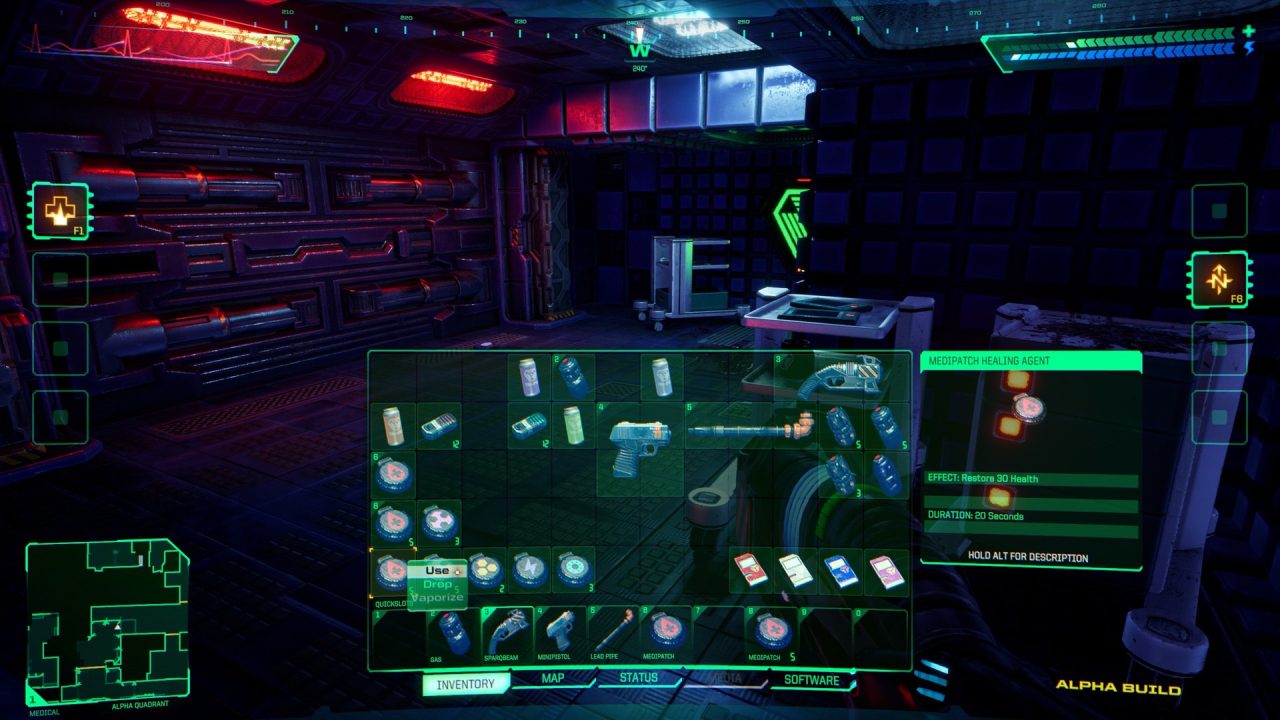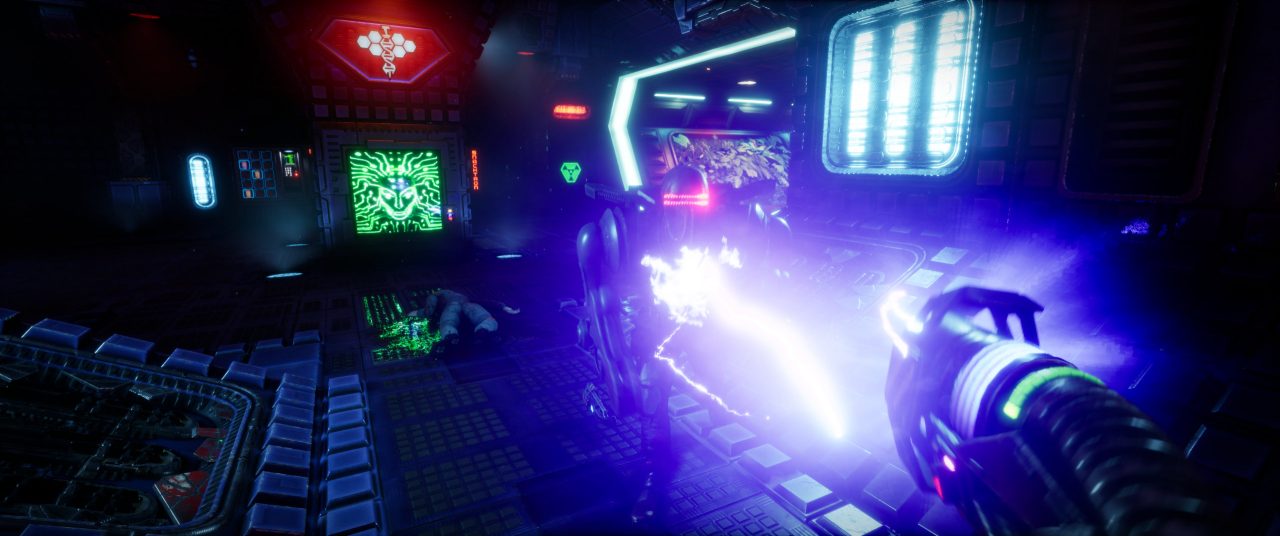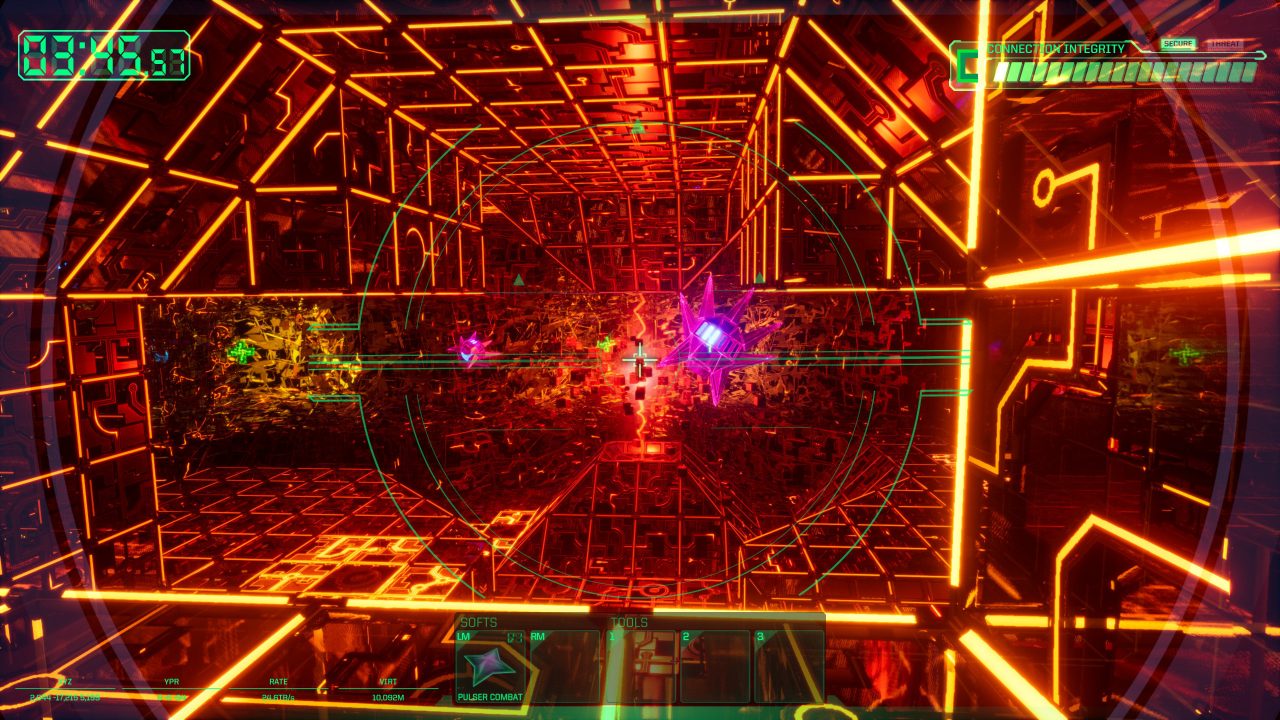If you’re anything like Stephen Hawking, artificial intelligence quakes you. I’m more of an eerie tremors guy. For those of us who’ve played System Shock, the Richter scale may be a digit or two higher. These geology metaphors doing it for you? Well, they shouldn’t because the System Shock remaster takes place entirely on a space station. Make no mistake: this is a remaster in almost every respect except for a few quality-of-life touch-ups, at least based on what I’ve seen of the first game.
Part of the reason I wanted to review this game is because it’s absolutely historic. Several of today’s games allegedly owe their creation to the impact System Shock made on current developers. Looking Glass Studios may be one of the most underrated, undeservedly forgotten companies in gaming, full stop. Anyway, aside from System Shock‘s monumental contributions to current gaming, how does it hold up?
We are hacker, interloper, insect, or whatever other moniker SHODAN decides to give us. Out of the gate, we are kidnapped by some corporate douchebag so that we can release an AI from its ethical restraints. This will end well. Shortly thereafter, we awaken in a medical bay on a space station, quickly realizing that the fate of humanity is contingent on our gunplay.
SHODAN is a historically terrifying villain because (as AI is often portrayed in sci-fi) she’s brilliant, drunk with power, and hates humans. The script, voice acting, and environment convey a sense of terror if one slows down enough to take in what exactly is going on. With games today, it’s easy to idly waltz by a corridor full of dismembered bodies and congealing blood, sifting through wreckage for ammo or medpacks, but don’t forget to stop and smell the roses. This game is absolutely brutal, and if the visuals don’t tell the story, the logs littered about sure do.

Most of System Shock’s storytelling takes place through retrievable audio logs typically found in hidden areas off the beaten path, except for the few that outright explain what the next task is. Bioshock, Prey, and so many others utilize this method of storytelling, but don’t view this as a tired device because System Shock may have been the first. Regardless, those playing System Shock for the first time will still enjoy finding these logs, as they’re brief, full, and well-acted. Most just add flavor and context, though the ones that give information about how to actually beat the game are invaluable. Unfortunately.
System Shock is old game hard, and not just in terms of the ridiculous fire rate and accuracy on enemy weapons. If one fumbles about without direction, getting lost and not knowing what to do is a genuine possibility. Players must be thorough in their investigation and mindful to take notes of what to do next based on any information relayed. Of course, many will turn to guides to get through the game, and I can’t say there’s any shame in that. Much of what System Shock tasks players to do requires retreading old areas to find a valuable piece of information they may not be aware of until a later log cues them to it.
Retracing our steps wouldn’t be a problem if enemies didn’t respawn. And I don’t mean they respawn because of a story beat when security amps up. I mean, enemies appear out of the ground in some areas when the entire floor is completed. Not only is this nerve-wracking, but the game’s hard enough on the default difficulty, what with limited resources like ammo, money, and medpacks. A savvy player will use the map frequently and focus on where medbays are because some have continued-use beds to restore health, and several areas have energy towers that can be used to fully restore the player’s battery, free of charge.

System Shock allows players to upgrade their character through mods on weapons and mods on their person, with each mod having levels to enhance the initial benefit. For example, players will find environmental packs to help them diminish poison from biological or radiation hazards. These mods, of course, expend battery, and while players can use battery pickups to restore some or all of their battery, using the environment to fully restore energy seems necessary.
Navigating the space station initially feels like a boring labyrinth because all of the hallways appear similar. However, even if this is a space station, the layout is unique enough that I usually didn’t have to use my map when I wanted to go back to an old area. There’s ample personality to the construction. Although I complain about respawning enemies, this certainly adds to the tension, giving a sense that we are never safe. I may have wanted to know that a floor was completely clear and I could do whatever I wanted, but respawning enemies made me realize that I had to pay extra attention and not waste time or resources. Everyone’s going to have their own preferences, but the discomfort was mostly welcomed in my case when I wasn’t beating my head against a wall trying to figure out how to proceed.
I’m not sure of the exact changes from the original aside from sound and visuals, but the inventory system was streamlined a bit. A bit. Those of us who hate limited inventory space are going to be incredibly frustrated carrying around all sorts of junk, but players will soon realize that just vaporizing and scrapping everything is going to save on the headache of trying to recycle everything for maximum value. Also, use the money, because while save scumming is certainly an option, it waters down an otherwise immersive and enjoyably stressful jaunt through SHODAN’s private hell.

While the visuals aren’t AAA quality, they’re exceptional and visually pleasing enough to stave off any complaints. Terri Brosius returns to play SHODAN’s voice, and knowing that alone wows me because the quality of her work in the remaster is breathtaking, especially for the people who died on the space station. Although the story has been told time and time again, we must remember that this was probably the first video game to tell this kind of story; regardless of who came first, the story is executed well. The real hiccup here is the gameplay, because fighting enemies is tiresome; they are just too accurate and fast to respond. Yeah, peeking around every corner is an option, but that’s a bore. Hacking into cyberspace in a six-directional environment feels good, but is pretty vanilla and not my favorite aside.
I have mixed feelings about System Shock. The historical significance alone made this worth my time, and the remaster is stunning in several ways. Keeping to most of the original’s design was probably the right move, as it allows today’s audience to achieve an authentic experience. Would I have complained if the gunplay was improved upon and the puzzling streamlined a bit? No, but I can’t blame Nightdive Studios for making the call. While not the best gaming experience I ever had, I have a greater appreciation for games made today by virtue of knowing firsthand what System Shock did for us. Regardless, I enjoyed myself, and I hope we see System Shock 2 remastered by the same team.


